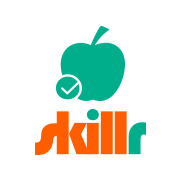Description

Alemira Proctor

Liberty Library Management
Comprehensive Overview: Alemira Proctor vs Liberty Library Management
Alemira Proctor and Liberty Library Management are distinct products targeting different markets and serving unique purposes within the educational and library management sectors. Below is an overview of each product, covering their primary functions, target markets, market performance, and key differentiators.
Alemira Proctor
a) Primary Functions and Target Markets
Primary Functions: Alemira Proctor is an online proctoring solution designed to ensure the integrity and security of online examinations. Its core functionalities include:
- Automated Proctoring: Uses AI to monitor candidates during exams for any suspicious behavior.
- Live Proctoring: Involves real-time monitoring by human proctors for added security and support.
- Record and Review: Record exam sessions for later review to ensure compliance and integrity.
Target Markets:
- Higher Education Institutions: Universities and colleges requiring secure proctoring solutions for online assessments.
- Professional Certification Bodies: Organizations that offer certification exams online.
- Corporate Training Providers: Companies conducting internal assessments and certifications.
b) Market Share and User Base
Market Share and User Base: Alemira Proctor is part of a competitive landscape of online proctoring solutions that includes well-known names like ProctorU, Examity, and Respondus. The market for online proctoring has been growing due to the increase in remote education and digital assessments. While accurate market share figures can be difficult to ascertain, Alemira Proctor competes by offering a robust, technologically advanced platform with AI and human-reviewed options. Its user base primarily consists of educational institutions and certification bodies seeking reliable proctoring solutions.
c) Key Differentiating Factors
Differentiating Factors:
- AI Integration: Advanced AI capabilities for detecting suspicious behaviors more accurately.
- Flexible Proctoring Options: Combination of automated, live, and record-and-review options providing flexibility.
- Scalability and Security: Built to handle large volumes of exams with robust security protocols to ensure data integrity.
Liberty Library Management
a) Primary Functions and Target Markets
Primary Functions: Liberty Library Management is a comprehensive library management system (LMS) designed to streamline library operations. Key functionalities include:
- Catalog Management: Tools for organizing and maintaining book and digital media catalogs.
- Circulation Management: Efficient management of check-ins, check-outs, and reservations.
- User Account Management: Facilitation of personalized user accounts and patron management.
- Reporting and Analytics: Features for tracking library usage and generating detailed reports.
Target Markets:
- Public Libraries: Municipal and regional libraries serving large communities.
- Academic Libraries: Libraries within universities and schools requiring sophisticated management solutions.
- Special Libraries: Libraries in corporate, government, or specialized research settings.
b) Market Share and User Base
Market Share and User Base: Liberty Library Management is one of many players in the library management software market, competing with systems like Koha, Alma (Ex Libris), and SirsiDynix. The library management software market is stable with moderate growth, driven by technological upgrades and digital transformation in libraries. Liberty, known for its user-friendly design and comprehensive feature set, holds a respectable user base primarily in academic and public libraries.
c) Key Differentiating Factors
Differentiating Factors:
- Ease of Use: Known for its intuitive interface that simplifies library operations for users of all technical levels.
- Comprehensive Feature Set: Offers all-in-one solutions from catalog management to reporting and analytics without needing third-party integrations.
- Customizability: Flexible options for libraries to customize workflows and user experiences according to their specific needs.
Summary
Alemira Proctor is focused on the online proctoring market, offering AI-driven and versatile proctoring solutions primarily for educational institutions and certification bodies. Liberty Library Management, on the other hand, provides library management solutions with robust functionalities for catalog and user management tailored to public, academic, and special libraries. Both products differentiate themselves with specific appeals: Alemira Proctor's technological sophistication and Liberty's ease of use and comprehensive features. Each product competes within its own niche, catering to the needs of their respective target markets.
Contact Info

Year founded :
Not Available
Not Available
Not Available
Not Available
Not Available

Year founded :
Not Available
Not Available
Not Available
Not Available
Not Available
Feature Similarity Breakdown: Alemira Proctor, Liberty Library Management
As of my last update in October 2023, both Alemira Proctor and Liberty Library Management are software solutions designed to assist academic institutions and libraries, but they serve somewhat distinct purposes. Alemira Proctor is primarily an online proctoring solution, while Liberty Library Management is a library management system. However, there might be some overlapping features given that both cater to educational and information institutions.
a) Core Features in Common
-
User Authentication & Access Control: Both systems likely incorporate user authentication mechanisms to ensure secure access to their platforms.
-
User Management: Each platform would provide tools to manage user profiles, whether they're students, librarians, or faculty, allowing administrative control over permissions and roles.
-
Data Management & Reporting: Both systems offer reporting features to track usage, activity, and possibly compliance, tailored to their specific purposes (proctoring or library use).
-
Integration Capabilities: Systems designed for educational environments tend to offer integrations with educational and learning management systems (LMS), although the specifics would vary.
b) User Interfaces Comparison
-
Alemira Proctor:
- The user interface is likely designed with simplicity and ease of use at the forefront, focusing on facilitating online examinations efficiently.
- Interface will include features like exam setup, monitoring dashboards, and notifications for students and proctors.
-
Liberty Library Management:
- The interface might be more comprehensive, providing librarians with easy access to catalog management, circulation, acquisition, and patron communication tools.
- It includes search functionalities, catalog management features, and a user-friendly dashboard tailored to the daily operations of a library.
c) Unique Features
-
Alemira Proctor:
- AI-Powered Proctoring: One of its unique selling points would be its advanced AI capabilities for cheating detection and monitoring during exams.
- Real-time Intervention: Tools that allow real-time intervention and interaction between students and proctors during an exam period.
-
Liberty Library Management:
- Cataloging Features: Advanced cataloging options, potentially supporting MARC records and other library data standards.
- Resource Sharing and Interlibrary Loan: Features that enable libraries to manage borrowing and lending across different library networks.
- Digital Resource Management: Tools for managing electronic resources like e-books, databases, and digital archives.
Both products serve important functions in their respective domains and reflect a mixture of overlapping and unique features geared toward facilitating their core objectives in education and information management.
Features

Not Available

Not Available
Best Fit Use Cases: Alemira Proctor, Liberty Library Management
Alemira Proctor and Liberty Library Management serve distinct purposes, and their best-fit use cases vary based on industry needs and project requirements.
Alemira Proctor
a) Types of Businesses or Projects:
- Educational Institutions: Alemira Proctor is ideally suited for universities, colleges, online learning platforms, and certification bodies that require secure and reliable online examination systems. It helps prevent cheating and maintains the integrity of remote examinations.
- Corporate Training Programs: Companies offering professional development or compliance training can use Alemira Proctor to ensure the authenticity of employee assessments.
- Certification Authorities: Organizations that provide industry-standard certifications or licensures can use proctoring to validate candidates' identities and ensure fair testing conditions.
Industry Verticals or Company Sizes:
- Education: Both K-12 and higher education institutions with a focus on online learning and assessment.
- Corporate Sector: Medium to large corporations looking to train and certify employees efficiently.
- Professional Associations: Organizations providing certifications in fields like accounting, IT, or healthcare.
Liberty Library Management
b) Preferred Scenarios:
- Public Libraries: Liberty Library Management is designed for public library systems that require robust cataloging, member management, and circulation functionalities.
- Academic Libraries: Schools and universities needing a comprehensive library management system to support student research, faculty needs, and interlibrary loan services.
- Corporate and Special Libraries: Corporations or specialized collections that require effective management of a diverse range of resources, including digital assets and archives.
Industry Verticals or Company Sizes:
- Public Sector: Libraries in small towns up to large cities that need scalable solutions.
- Academic Sector: Ranging from small college libraries to large university systems.
- Corporate and Special Collections: Companies or organizations with specific information repositories, such as legal firms or research organizations.
Cater to Different Industry Verticals or Company Sizes
-
Alemira Proctor primarily addresses the educational and corporate training sectors by offering solutions to scale examination processes, protect examination integrity, and manage large groups of test-takers effectively.
-
Liberty Library Management focuses on library-centric environments, supporting diverse user needs from public access services to specialized corporate or academic collections. It is adaptable to both small and large organizations, offering scalable solutions that grow with the user's needs.
Both products cater to different verticals by addressing their specific challenges and operational requirements, ensuring tailored features that meet industry standards and user expectations.
Pricing

Pricing Not Available

Pricing Not Available
Metrics History
Metrics History
Comparing undefined across companies
Conclusion & Final Verdict: Alemira Proctor vs Liberty Library Management
Conclusion and Final Verdict
When evaluating Alemira Proctor and Liberty Library Management, it's essential to consider various factors such as functionality, ease of use, pricing, customer support, and specific needs of the user. Both products offer distinct advantages, and the choice largely depends on the user's primary requirements.
a) Which Product Offers the Best Overall Value?
Considering all factors, Alemira Proctor tends to offer the best overall value for institutions primarily focused on seamless online proctoring and examination integrity. Its advanced proctoring features, including AI-driven surveillance and analytics, provide robust security for online assessments. However, if the primary need is comprehensive library management, Liberty Library Management is the better choice due to its extensive cataloging, circulation, and digital content management capabilities.
b) Pros and Cons of Each Product
Alemira Proctor:
-
Pros:
- Advanced AI-driven proctoring features.
- User-friendly interface for students and administrators.
- Robust analytics and reporting tools.
- Scalable for large institutions with diverse examination needs.
-
Cons:
- Primarily focused on examination environments, offering limited features outside of assessment contexts.
- May require integration with existing Learning Management Systems (LMS) for full functionality.
Liberty Library Management:
-
Pros:
- Comprehensive library management capabilities, including cataloging, circulation, and acquisition.
- Supports digital content management and integration with various e-resources.
- Strong community support and customization options.
-
Cons:
- Primarily geared towards library services, offering limited functionalities for examination settings.
- Might require additional modules or integrations for full-fledged digital resource management.
c) Recommendations for Users Deciding Between Alemira Proctor vs. Liberty Library Management
-
Identify Core Needs: Determine whether your primary requirement is a robust online proctoring solution or efficient library management. This will heavily influence your decision.
-
Consider Integration Needs: Evaluate existing systems within your organization and how each product will integrate or function alongside these systems. Alemira Proctor may require more effort or third-party systems for seamless integration with academic platforms.
-
Assess Budget and Resources: Consider the total cost of ownership, including licensing fees, implementation costs, and required resources for training and maintenance. Alemira Proctor's advanced features may come at a higher cost, reflecting its specialization in online examinations.
-
Evaluate Support and Scalability: If technical support and the ability to scale operations are critical, assess the vendor’s support services and future scalability options for each product.
-
Request Demonstrations: Participate in product demonstrations to experience their user interfaces and functionalities firsthand. This will help you gauge the ease of use and suitability for your institution.
Ultimately, the decision should align with your institution's strategic priorities and resource availability, ensuring that the selected solution offers the most beneficial features to meet your specific requirements.
Add to compare
Add similar companies




